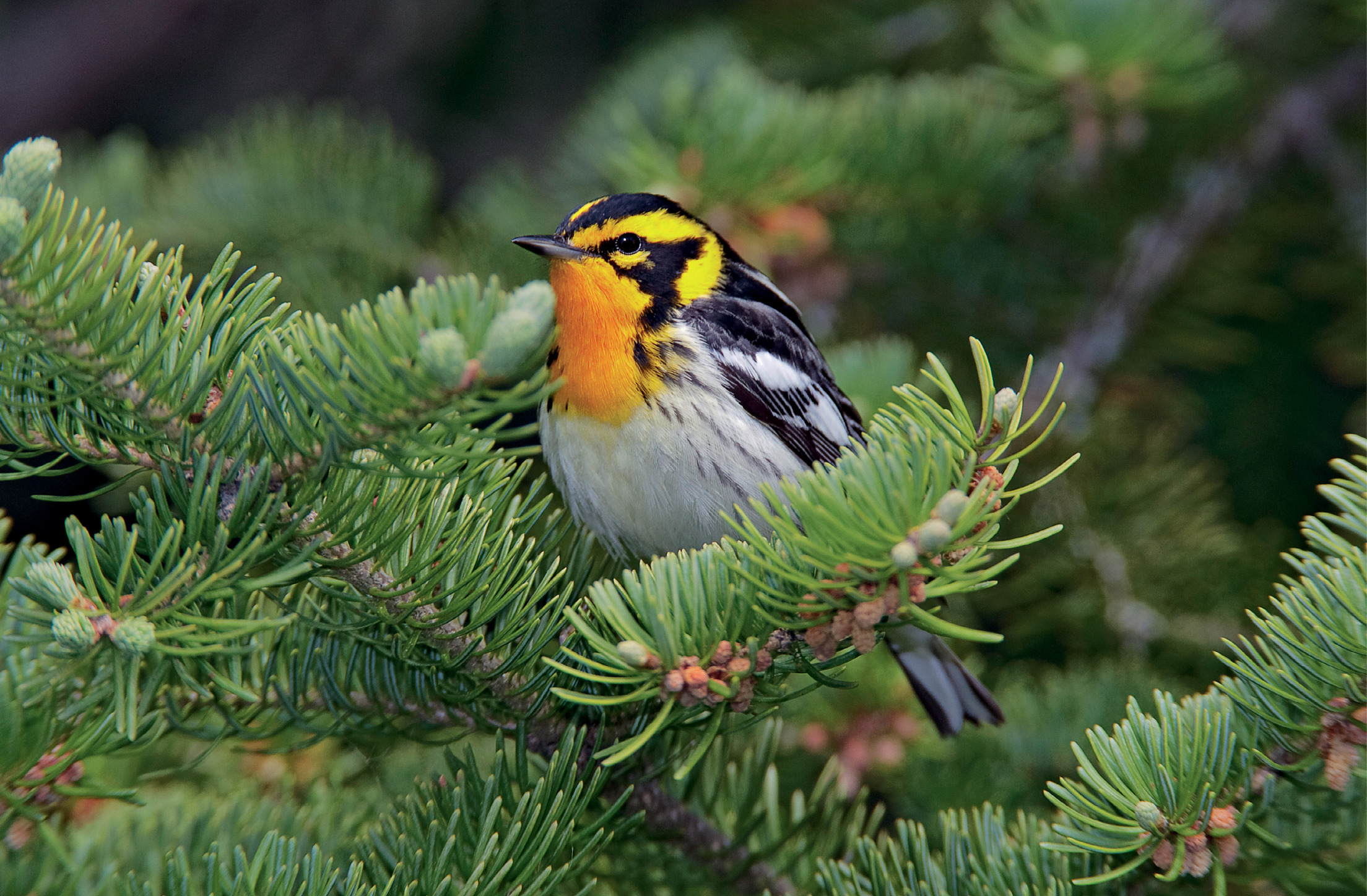

1. A male Blackburnian Warbler (Setophaga fusca) perched in a balsam fir on its breeding grounds in northern Maine. Photo by Jim Zipp


1. A male Blackburnian Warbler (Setophaga fusca) perched in a balsam fir on its breeding grounds in northern Maine. Photo by Jim Zipp
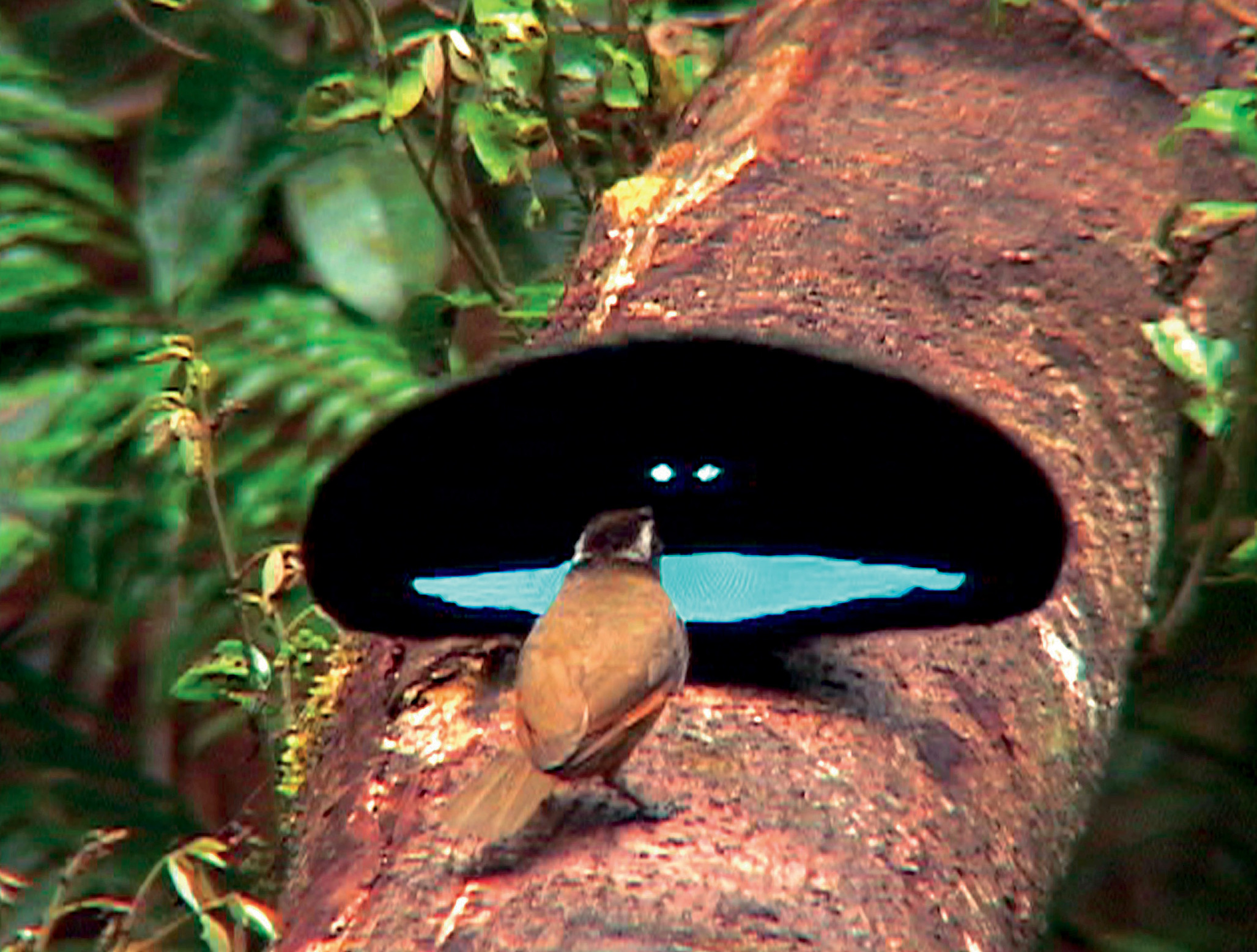

2. A male Superb Bird of Paradise (Lophorina superba) displaying to a female visiting his display log in the Central High lands of Papua New Guinea. Photo by Edwin Scholes III
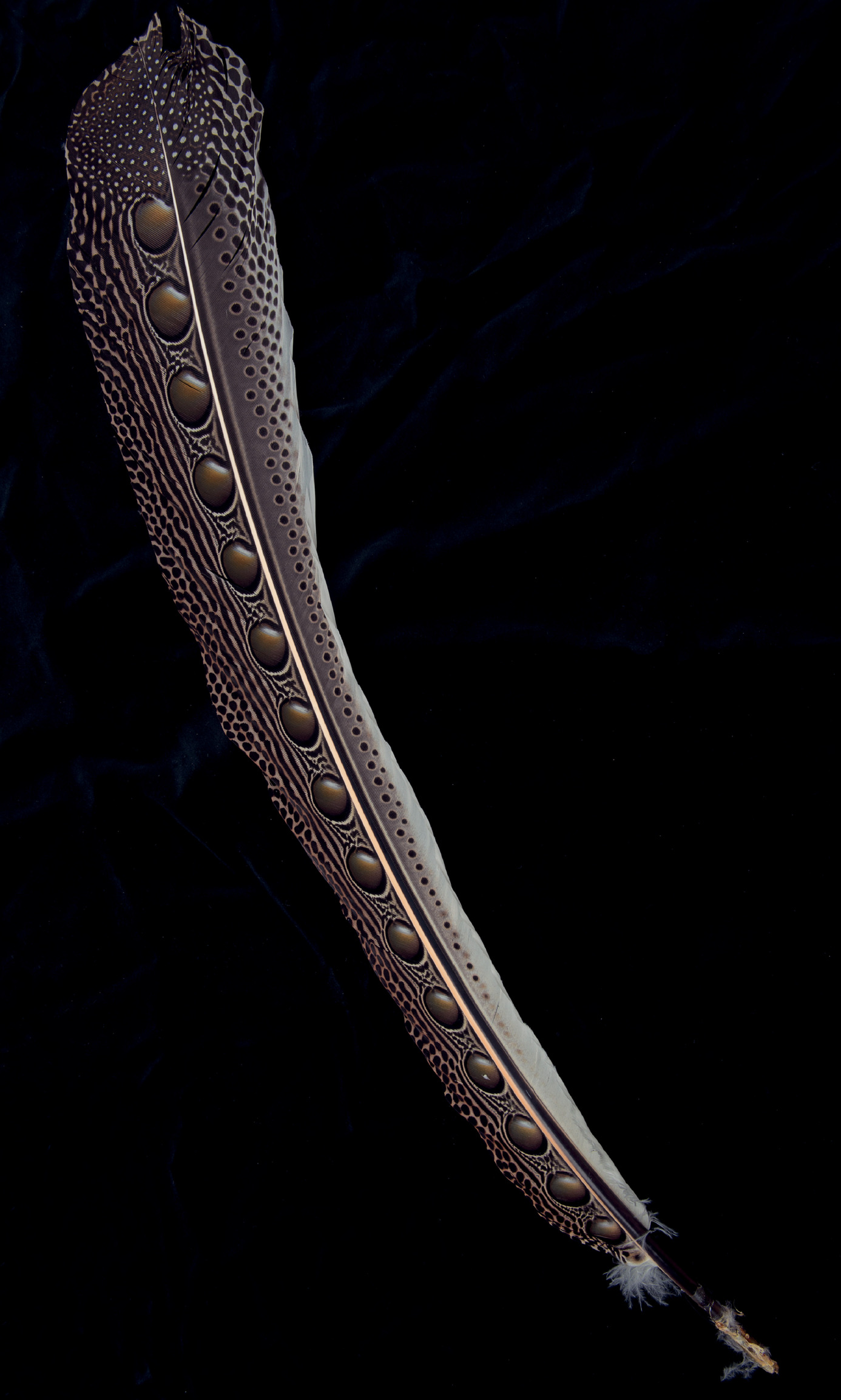

3. The fourth secondary wing feather of a male Great Argus (Argusianus argus). Photo by Michael Doolittle
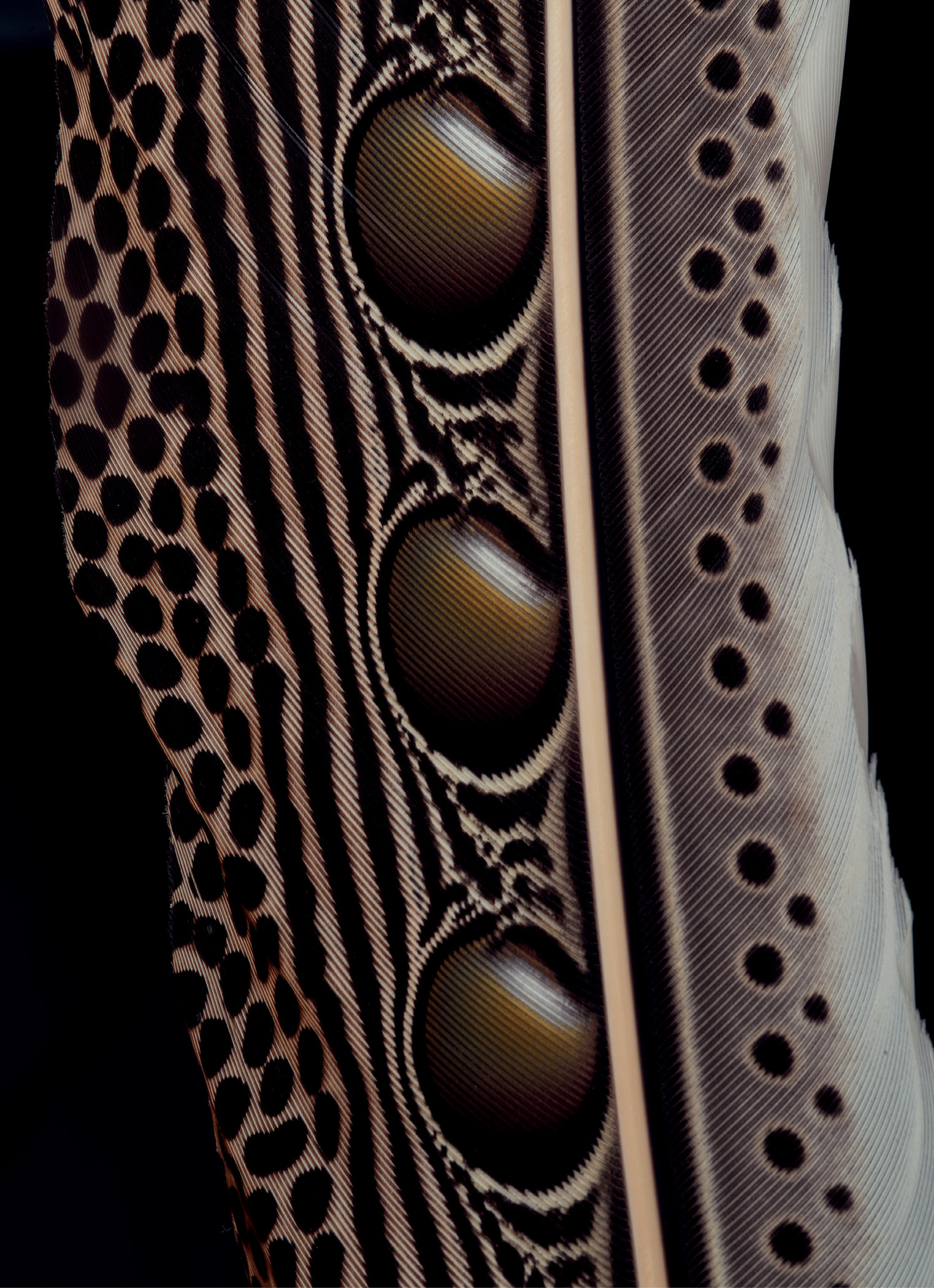

4. Detail of the complex pigmentation pattern of the 3D golden spheres on the fourth secondary of a male Great Argus (Argusianus argus).
Photo by Michael Doolittle
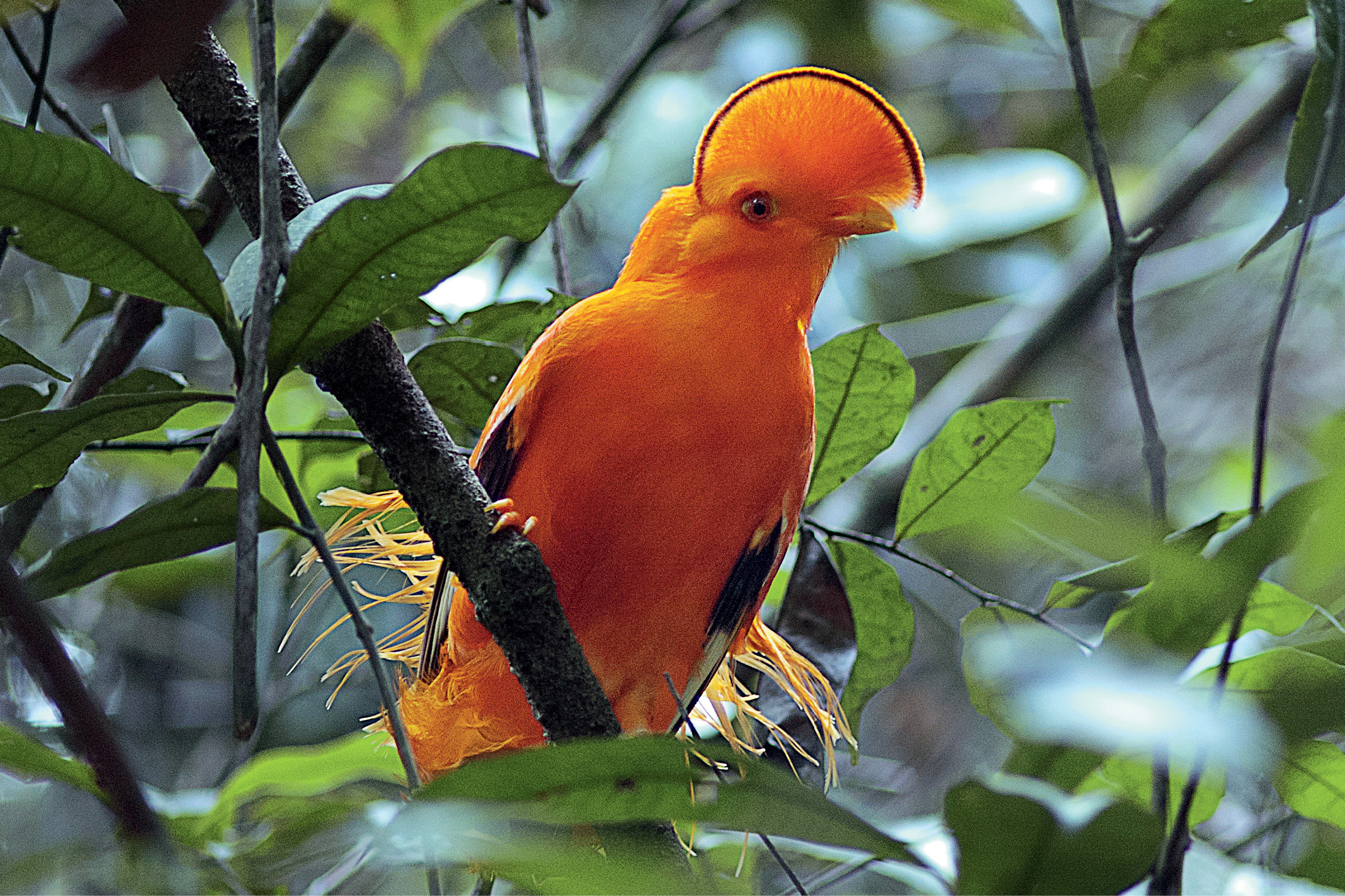

5. A male Guianan Cock-of-the-Rock (Rupicola rupicola) in the lowland rainforest of French Guiana. Photo by Tanguy Deville


6. A male Golden-headed Manakin (Ceratopipra erythrocephala) perched on its lek territory in the trees in northern Amazonia. Photo by Juan José Arango
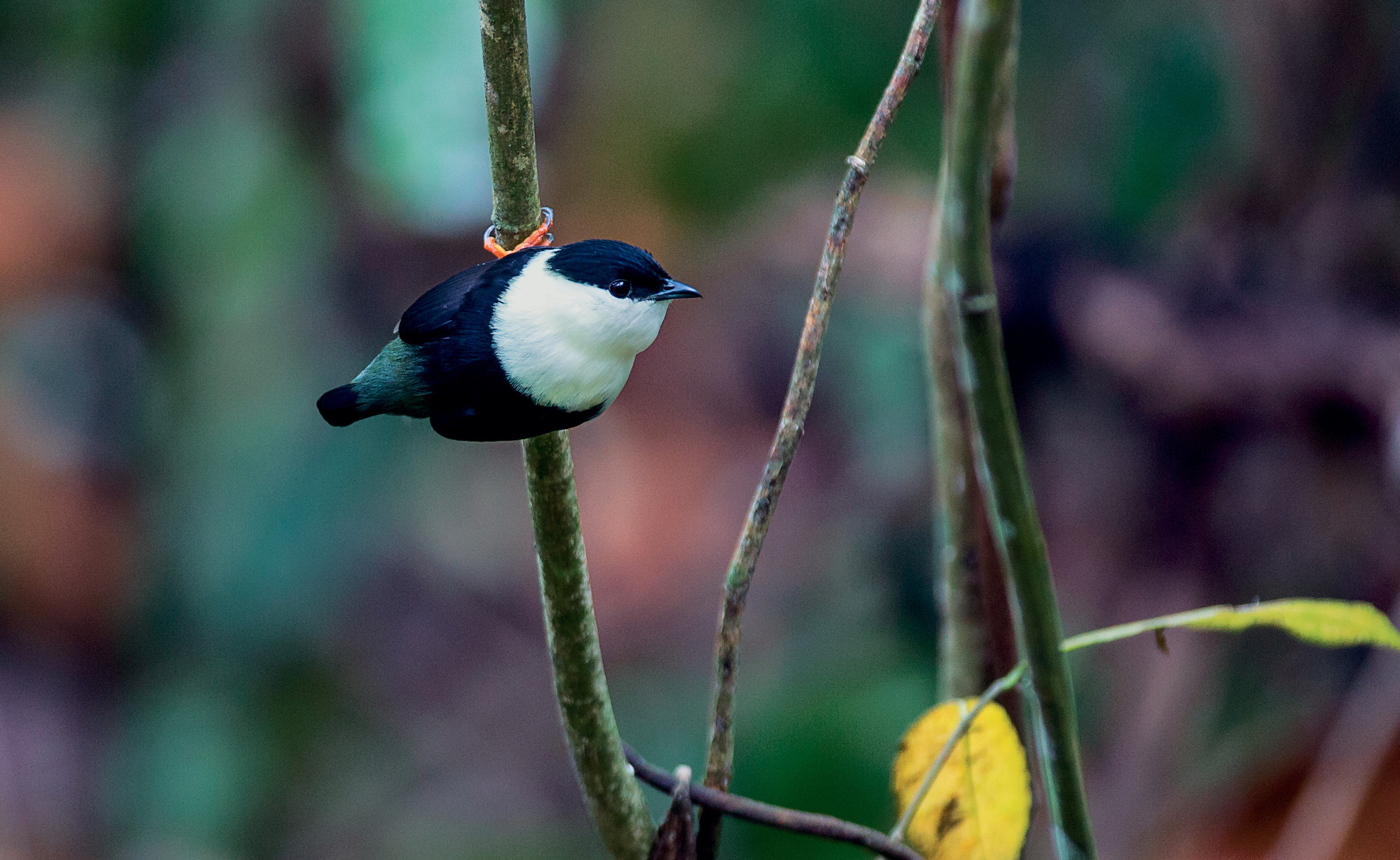

7. The male White-bearded Manakin (Manacus manacus) displays on thin saplings around a cleared court on the forest floor. Photo by Rodrigo Gavaria Obregón
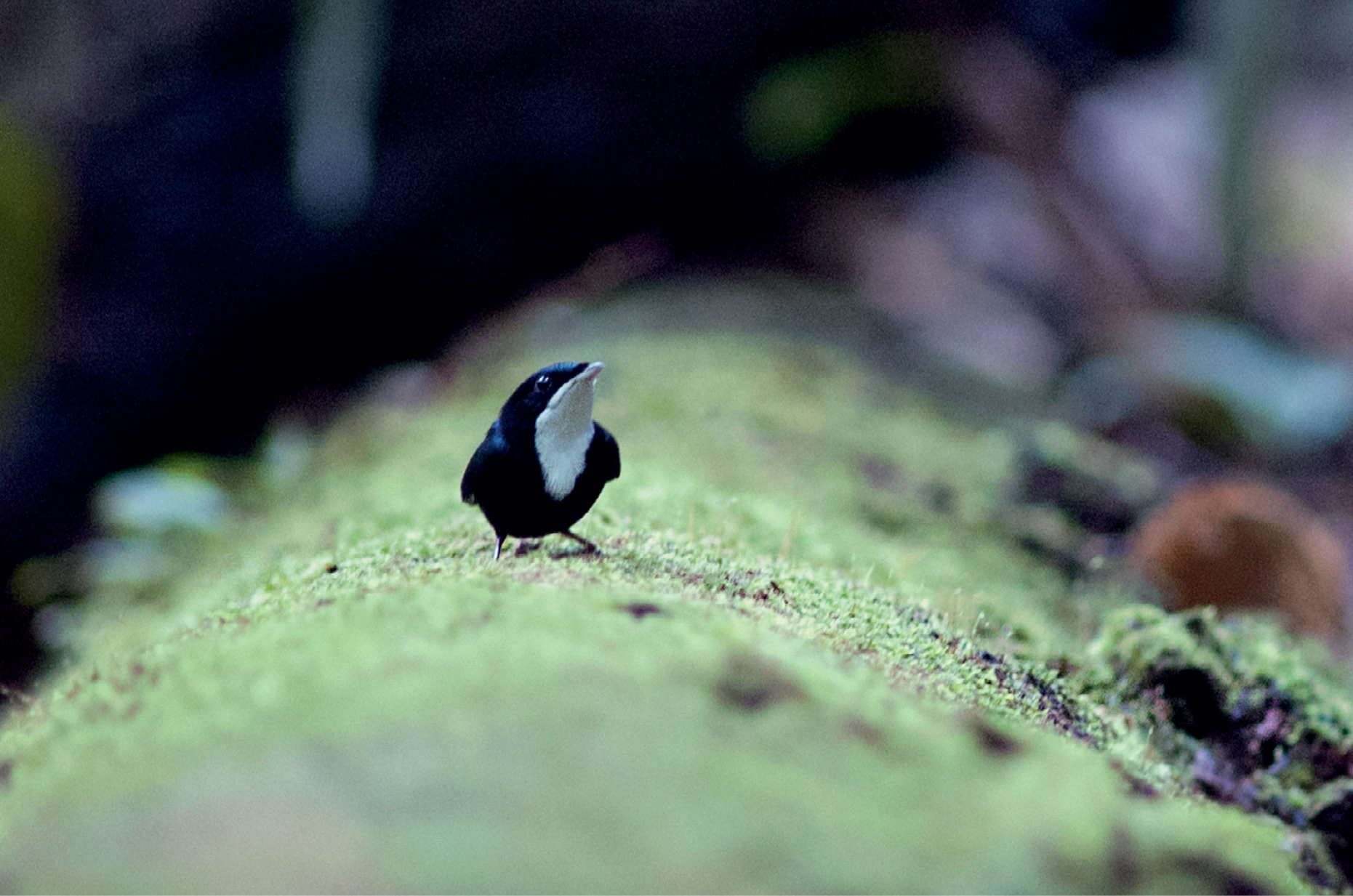

8. The male White-throated Manakin (Corapipo gutturalis) displays on mossy fallen logs on the forest floor. Photo by Tanguy Deville
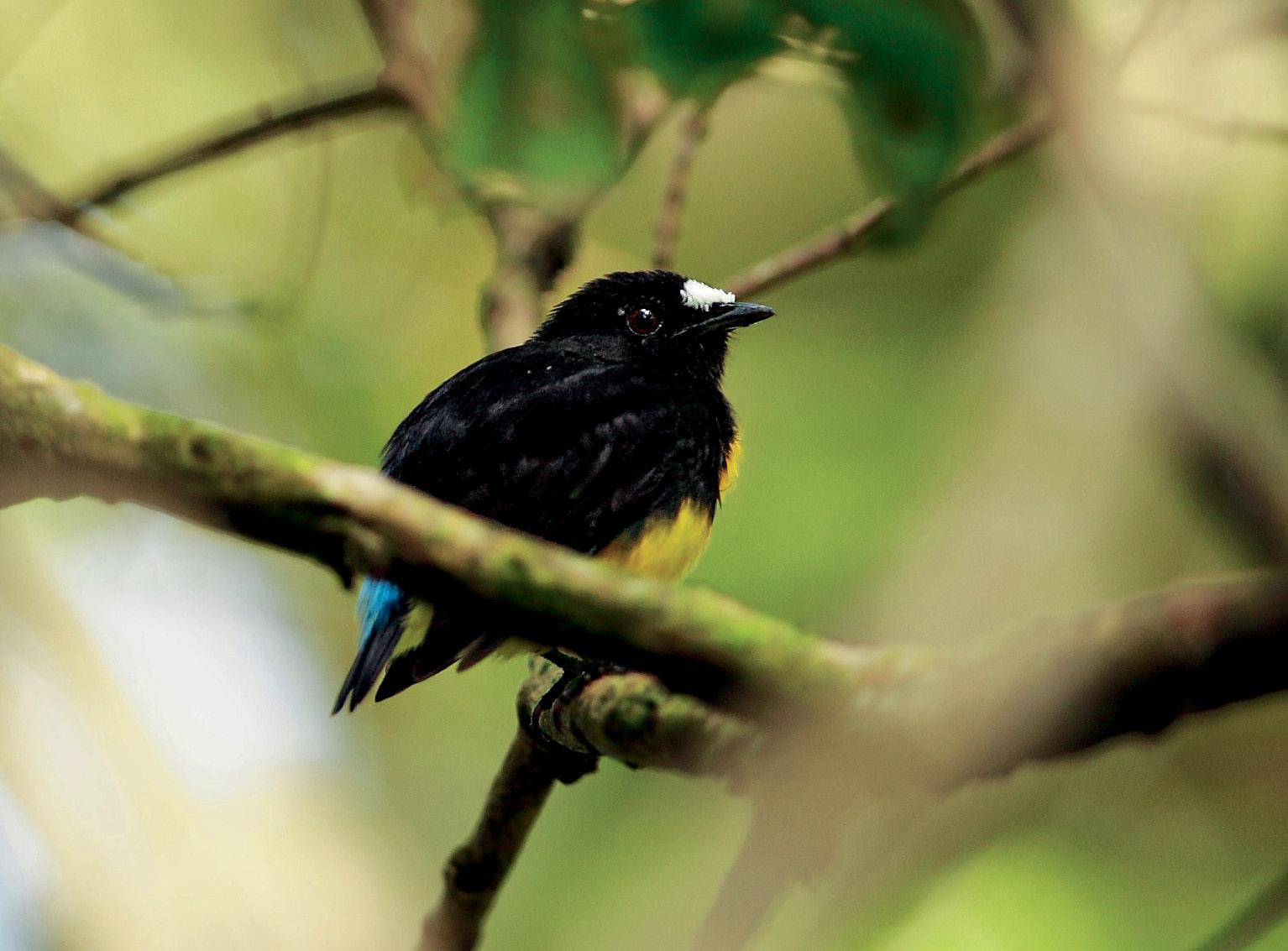

9. The male White-fronted Manakin (Lepidothrix serena) calls from a perch in the forest understory.
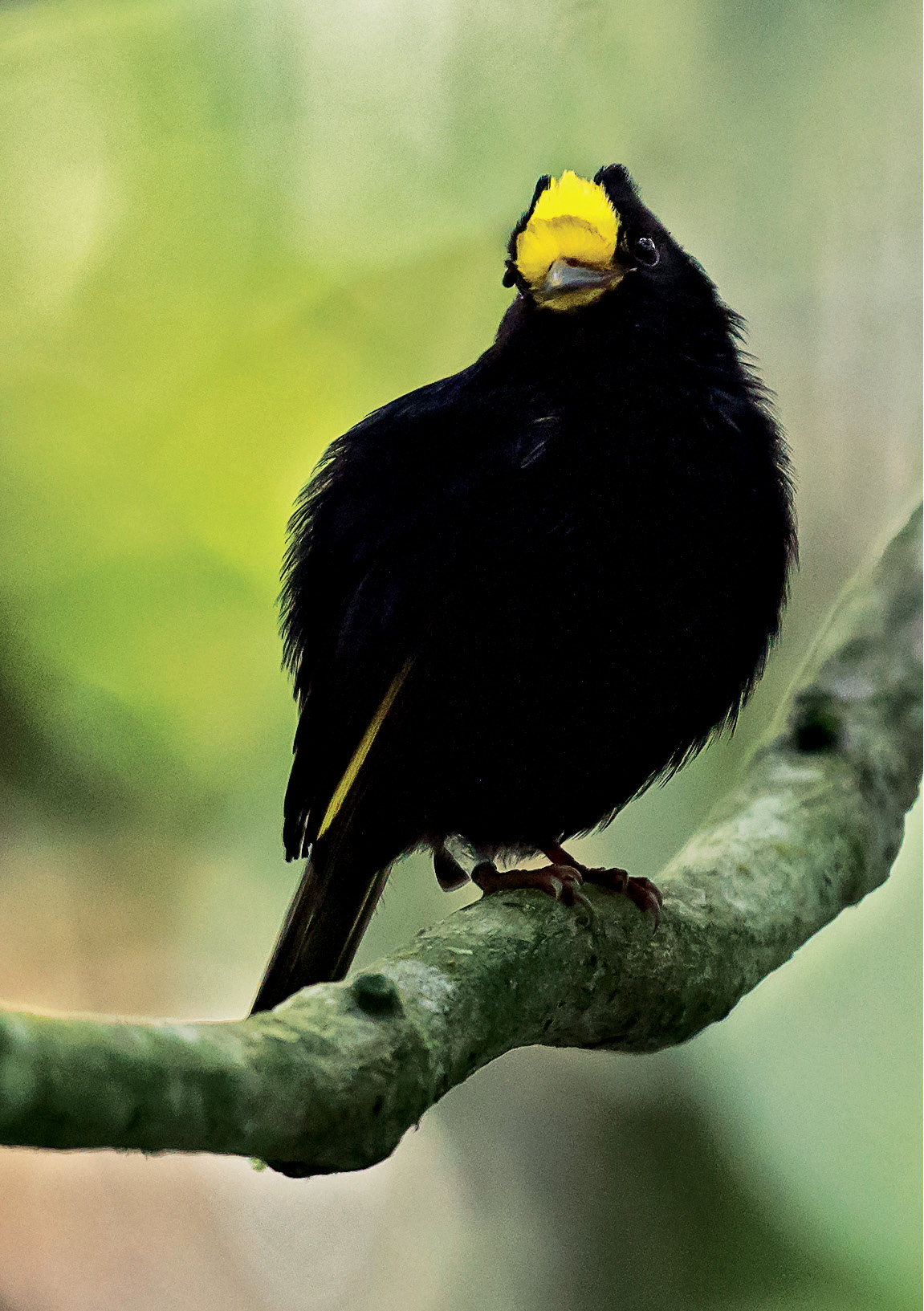

10. The male Golden-winged Manakin (Masius chrysopterus) has brilliant yellow wing patches that are usually hidden when the bird is perched, but prominently flashed during its log-approach flight display. Photo by Juan José Arango
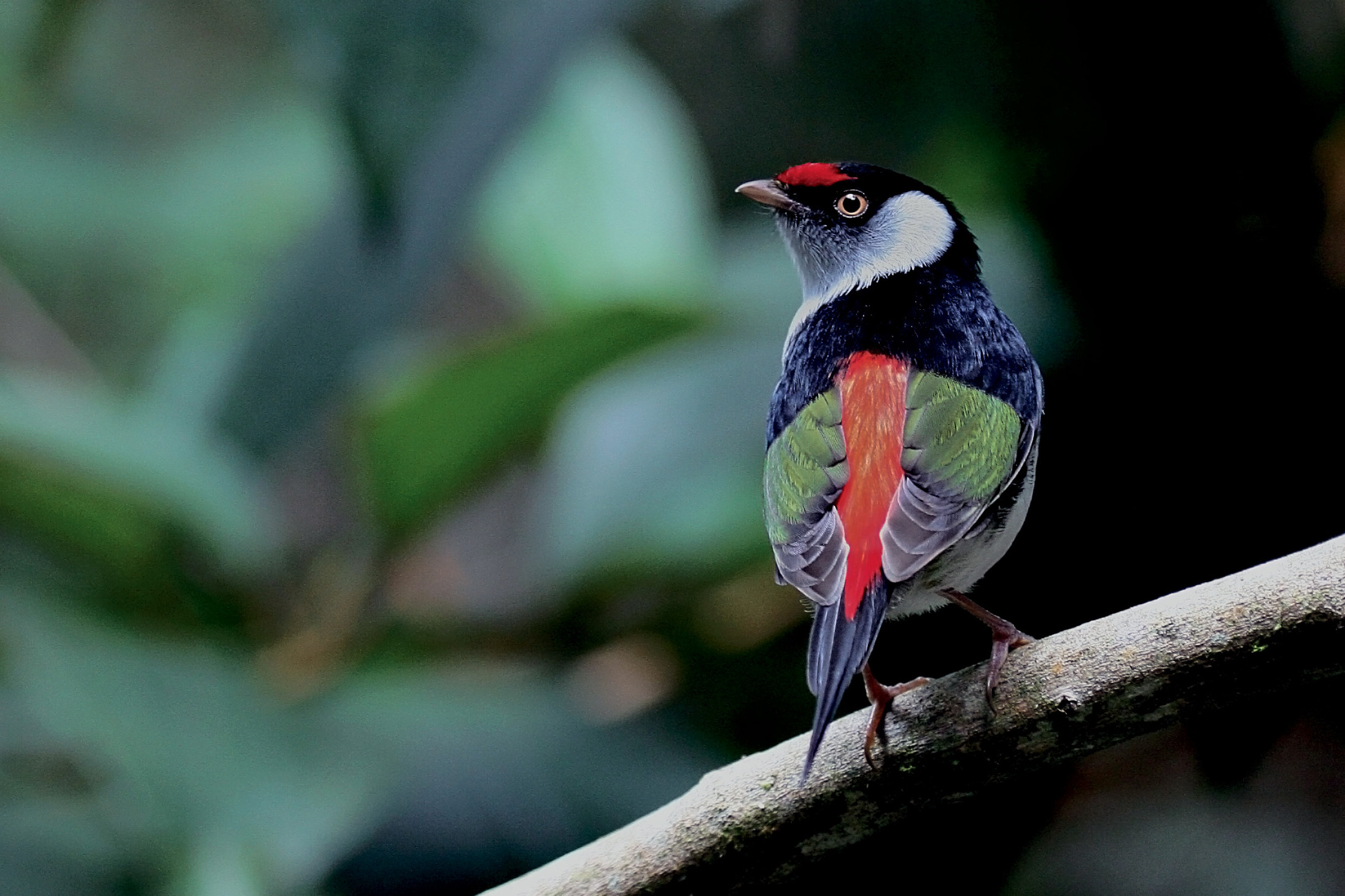

11. The behavioral repertoire of the Pin-tailed Manakin (Ilicura militaris) provides crucial evidence for analyzing the evolution of display behavior in its close relatives, the White-throated and Golden-winged Manakins. Photo by Rafael Bessa
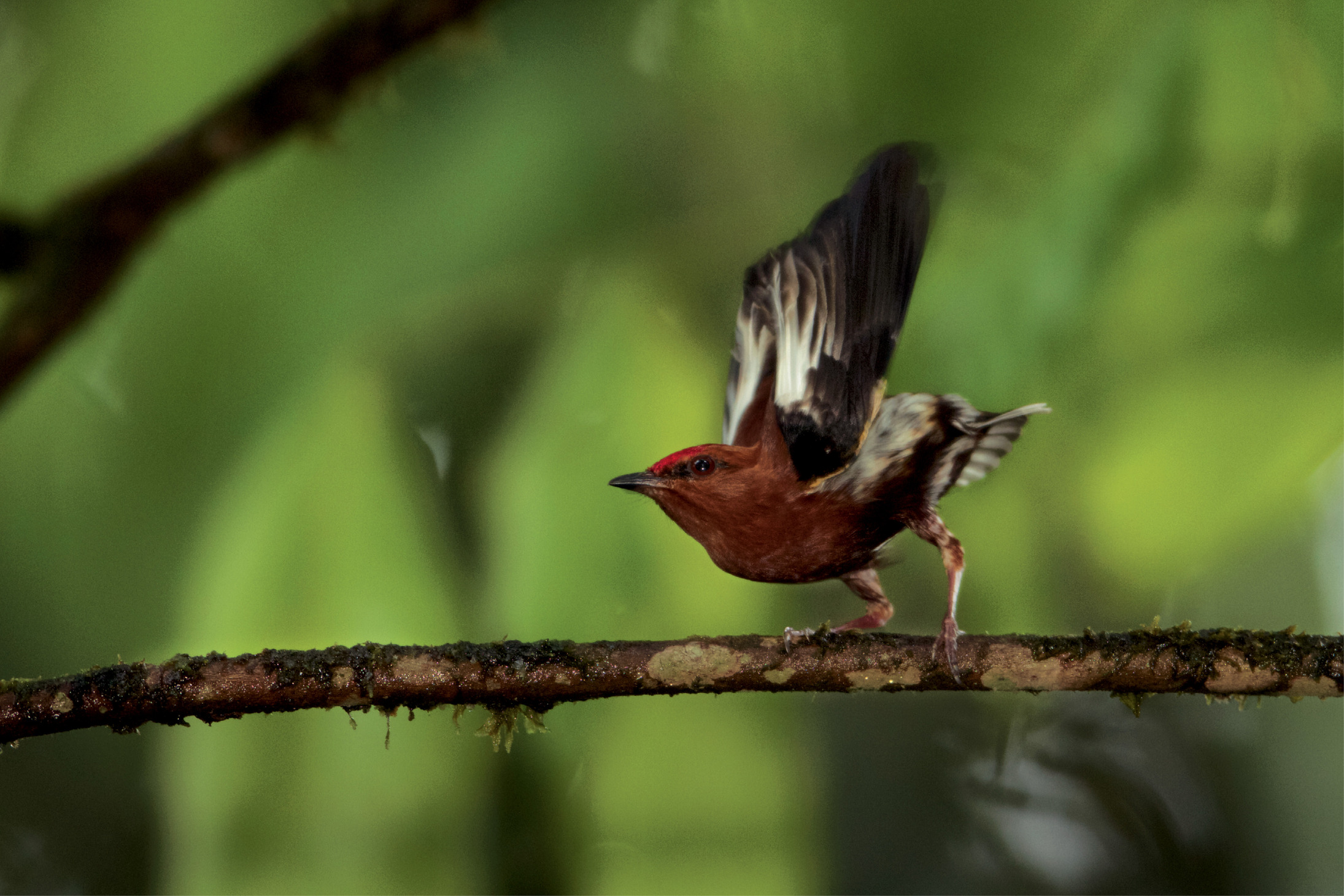

12. The male Club-winged Manakin (Machaeropterus deliciosus) produces its tonal wing song by rapidly vibrating its inner wing feathers from side to side over its back. Photo by Tim Laman
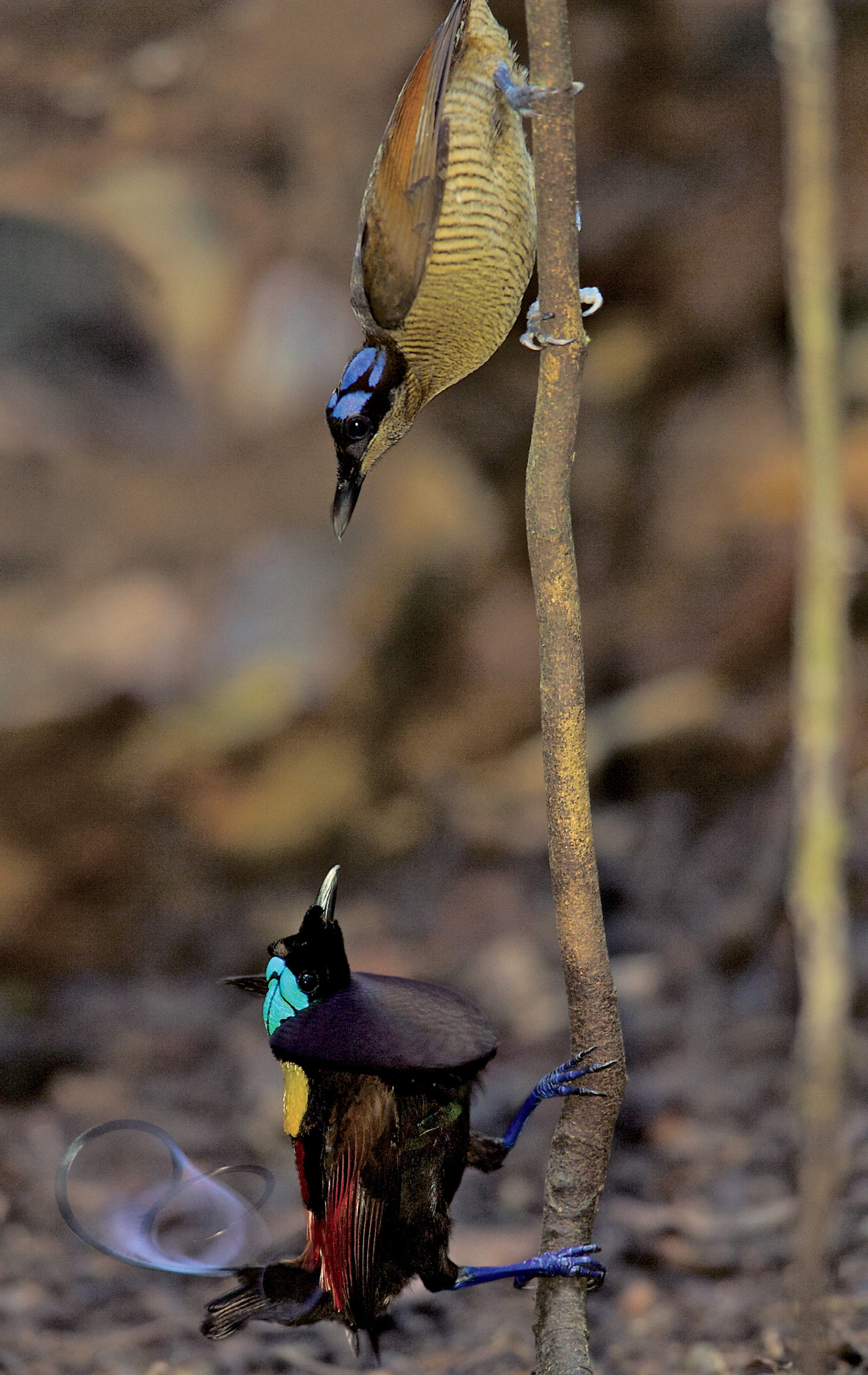

13. The male Wilson’s Bird of Paradise (Cicinnurus respublica) (below) displays the bald, featherless patches of bright blue skin on his crown to a visiting female (above). The female shares the same bald crown patches, albeit in a deeper blue hue. Photo by Tim Laman


14. An orange male (left) and brown female (right) Guianan Cock-of-the-Rock (Rupicola rupicola) feeding on palm fruits. The crests of both sexes are composed of feathers that grow from the sides of the crown toward the midline. Photo by Tanguy Deville
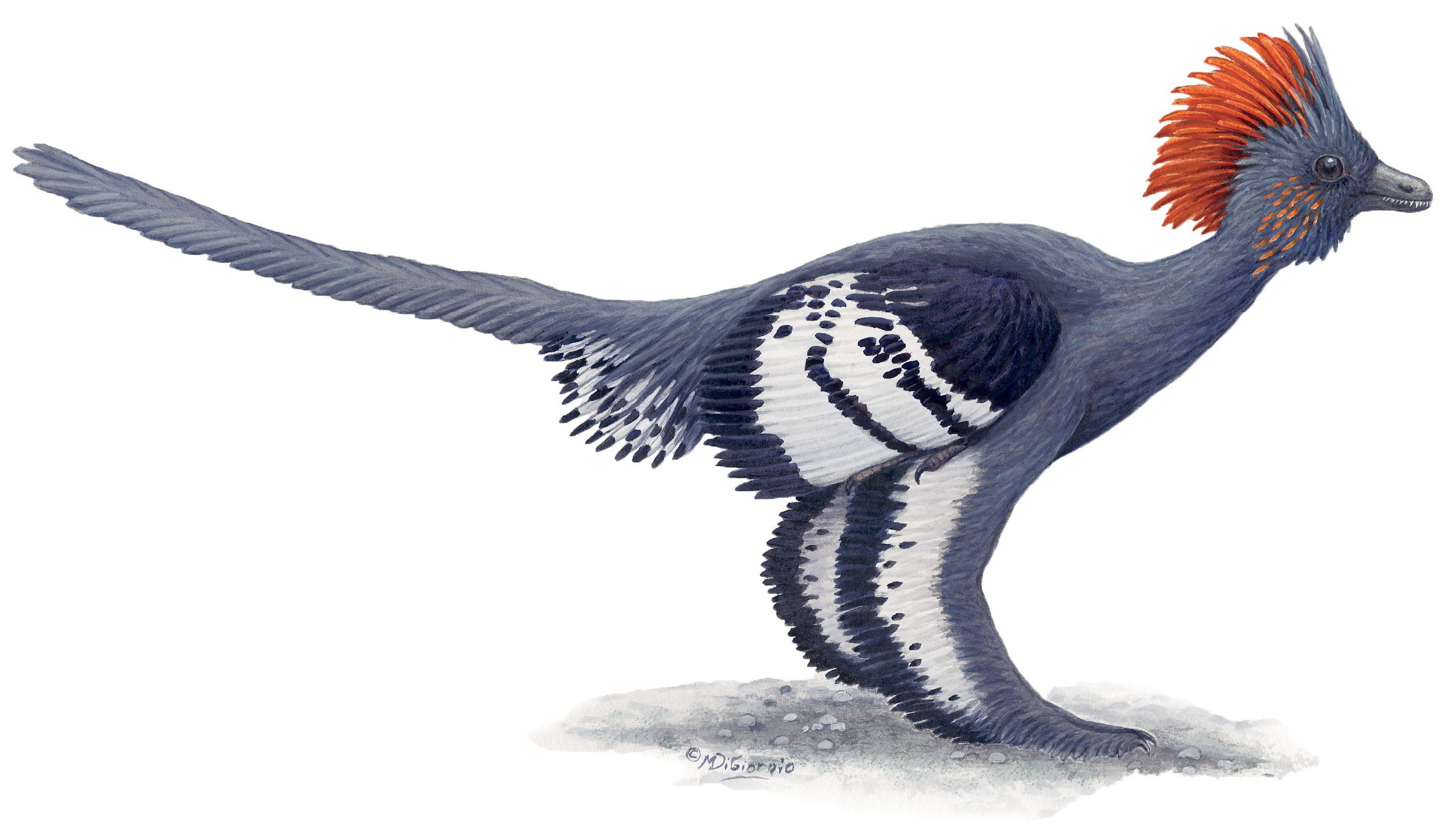

15. The plumage coloration of the Late Jurassic maniraptoran dinosaur Anchiornis huxleyi was reconstructed from analyses of electron microscope pictures of melanin pigment granules, or melanosomes, from its fossilized feathers. Painting by Michael DiGiorgio; from Li et al. (2010)
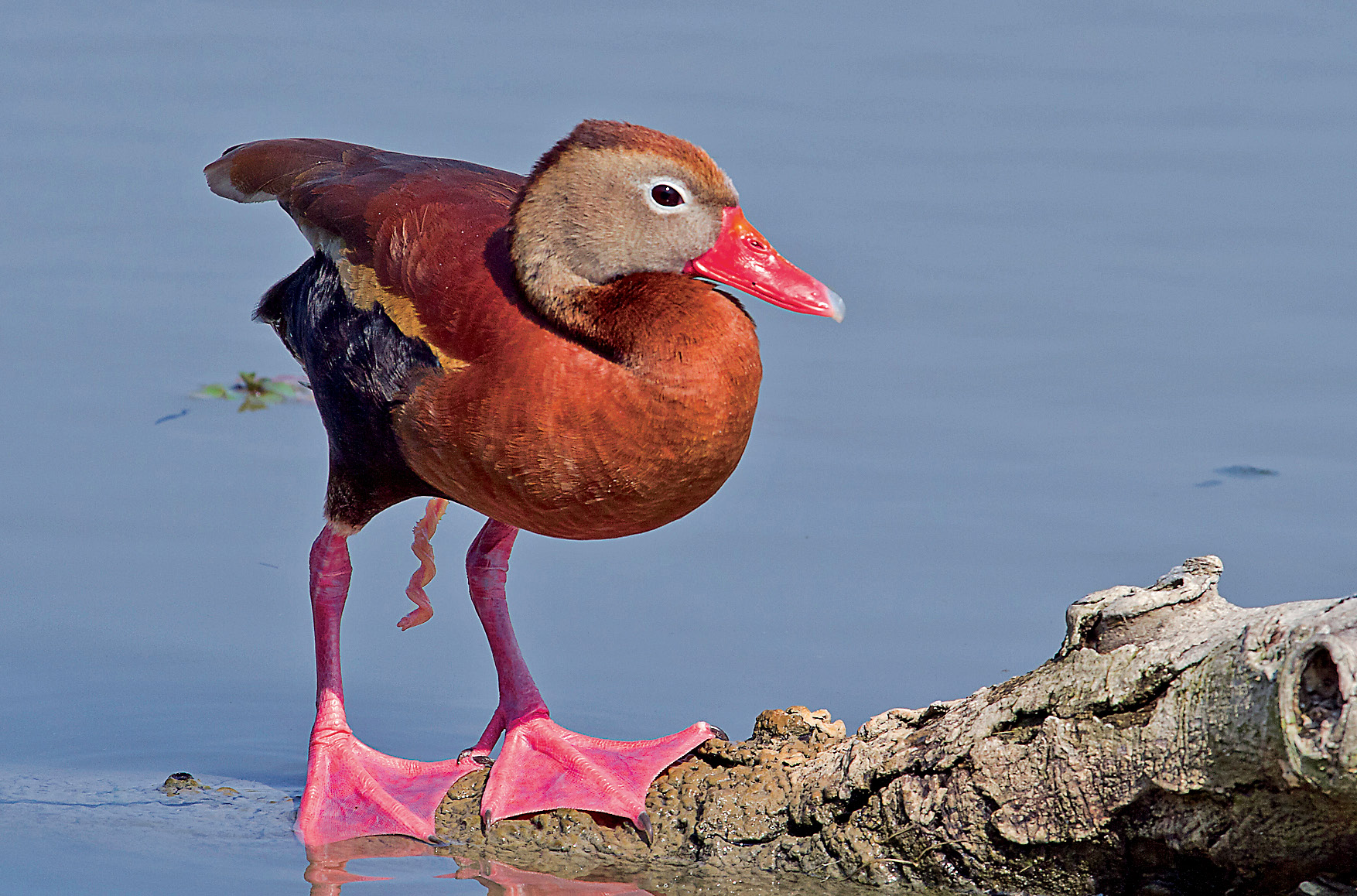

16. After copulation, the corkscrew-shaped penis of a male Black-bellied Whistling Duck (Dendrocygna autumnalis) dangles down briefly before being retracted into the cloaca. Photo by Bryan Pfeiffer
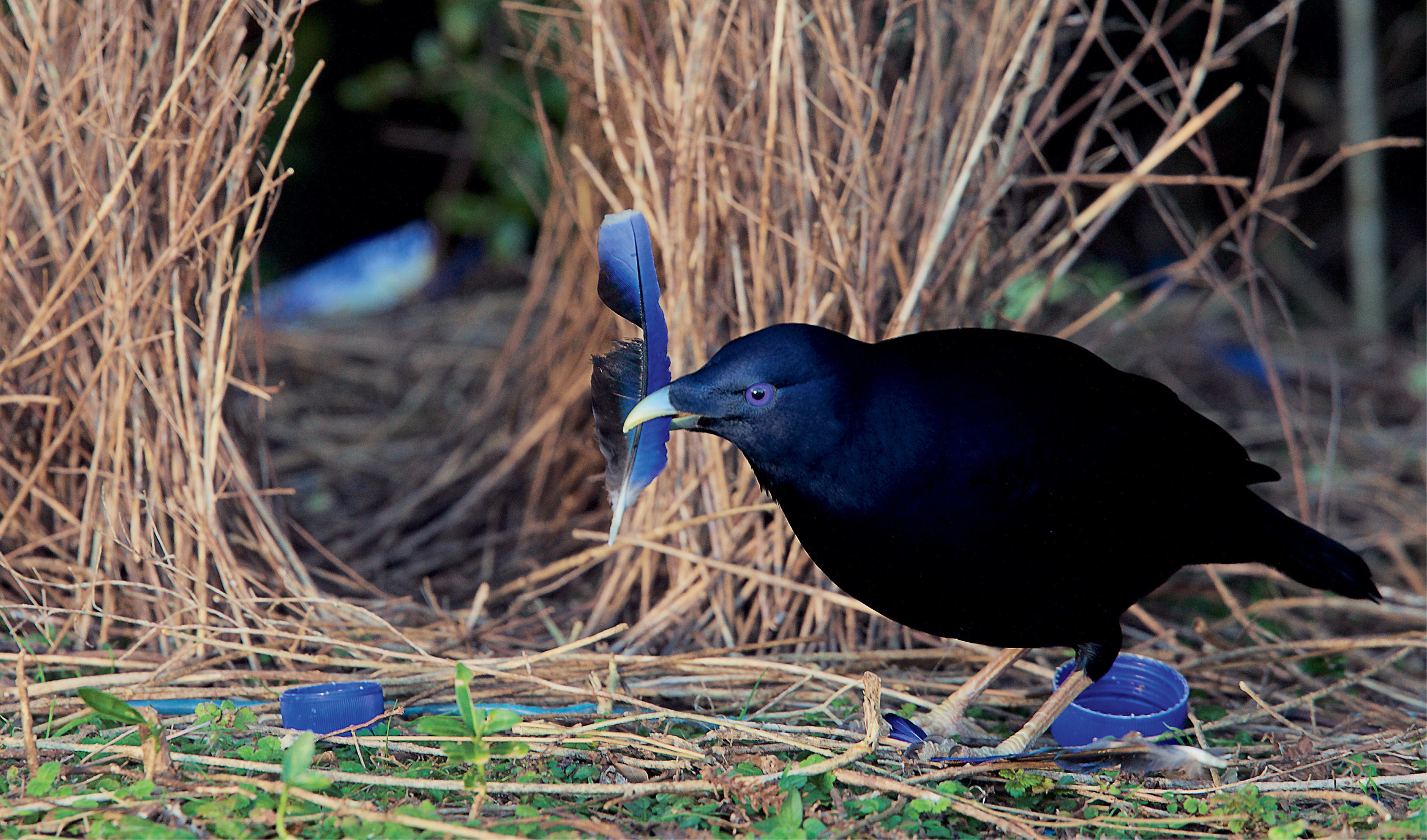

17. The male Satin Bowerbird (Ptilonorhynchus violaceus) builds an avenue bower and decorates the court in front of the bower with a plethora of royal blue objects found in the environment. Photo by Tim Laman


18. Male Great Bowerbirds (Chlamydera nuchalis) usually decorate their avenue bowers with bleached bones and sticks, but this individual has decorated its bower with fossil clam shells. Photo by Richard O. Prum
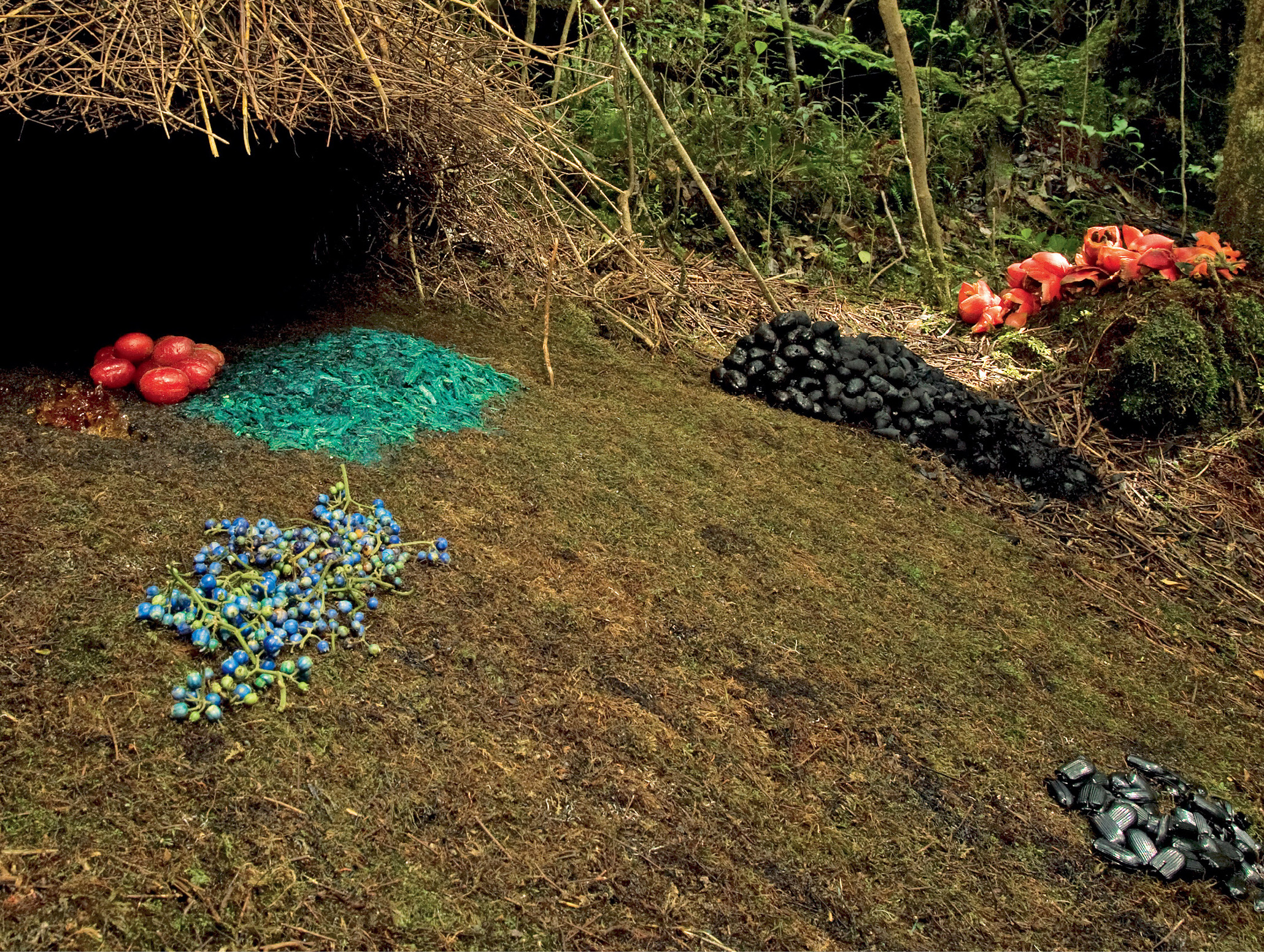

19. This male Vogelkop Bowerbird (Amblyornis inornata) in the Arfak Mountains of western New Guinea curates a collection of strange objects and materials on a planted garden of moss in front of its hut bower (clockwise from the upper left): globular red fruits; flakes of rotten wood infiltrated with green fungus; charcoal, black fungus, and rotten red fruits turned black; red flowers from Freycinetia vines; shiny black beetle elytra; blue berries; and gelatinous amber tree exudate. Photo by Brett Benz
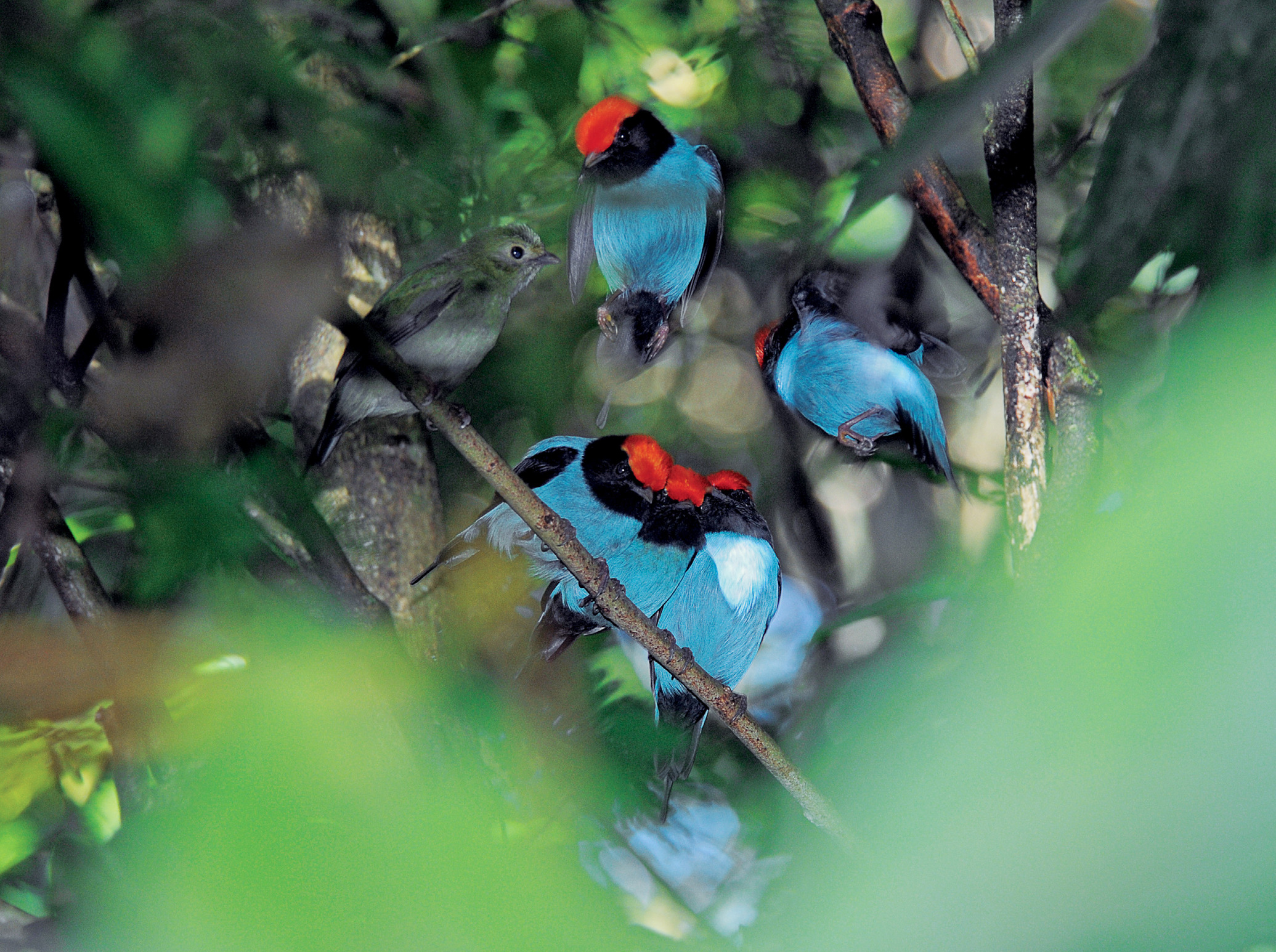

20. In southeastern Brazil, a group of five adult male Blue Manakins (Chiroxiphia caudata) performs a coordinated, cooperative, cartwheel display to a visiting green female (left). If she prefers the group’s display, she will mate with the dominant male of the group. Photo by João Quental


21. An Atlantic Puffin (Fratercula arctica) returning to its nesting burrow on Machais Seal Island, New Brunswick, Canada. During the breeding season, both sexes have identical, brilliant beak colors. Photo by Jim Zipp